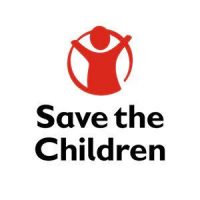
Save the Children is the leading independent organization for children in need, with programs in over 120 countries. We save children’s lives. We fight for their rights. We help them fulfil their potential. Save the Children is working in Nigeria because one in five children in Nigeria dies before their fifth birthday. About 40% of children miss out on school and have to work to survive while nearly 2 million children have lost one or both parents to an AIDS-related disease.
We are recruiting to fill the position below:
Job Title: Accountability Coordinator
Job ID: 220006S7
Location: Maiduguri, Borno
Grade: 3
Contract Length: Fixed Term
Team / Programme: PDQ / Humanitarian MEAL team
Child Safeguarding
- Level 3: the post holder will have contact with children and young people either frequently (e.g. once a week or more) or intensively (e.g. four days in one month or more or overnight) because they work country programs; or are visiting country programs.
Role Purpose
- The Accountability Coordinator will work to put the children and communities we serve at the centre of our work through supporting the humanitarian response to integrate child-friendly, gender-sensitive, inclusive, accessible and appropriate accountability systems (including information sharing and Feedback and Reporting Mechanisms) and support child participation.
- The Accountability Coordinator will work closely with the MEAL, Child Safeguarding, and programme teams (especially Child Rights Programming and Child Rights Governance teams, as well as the partnerships lead) to support accountability to children and communities.
- In the event of a major humanitarian emergency, the role holder will be expected to work outside the normal role profile and be able to vary working hours accordingly.
- During responses, the Accountability Coordinator may be expected to participate in the Accountability to Affected People/Communication & Community Engagement Working Group on behalf of Save the Children (if established) to advocate for child-sensitive accountability approaches in the wider response.
Scope of Role
- Reports to: MEAL Manager
- Staff reporting to this post: Accountability Officer
- Budget Responsibilities: NA
- Context: Humanitarian
- Scope: Borno FO
Key Areas Of Accountabilities
Leadership and Strategy:
- Champion accountability to children and communities and child participation, as well as child rights principles, within our work, and support all staff to understand their roles and responsibilities in this area.
- Support the development and implementation of the Country Office Accountability to Children and Communities Framework, which sets out a contextually-appropriate approach to information sharing, Feedback and Reporting Mechanism, and child participation (in line with the SCI Accountability to Children and Communities Procedure; SCI Child Rights Programming, Theory of Change and Programme Procedure; the Core Humanitarian Standard; the Nine Basic Requirements for Quality Child Participation; and MEAL in Emergencies System Quality Benchmarks), and support the implementation of the associated action plan.
- Champion the use of accountability data and child and community participation analysis to inform decision-making and improve programme quality.
- Support accurate reporting on the Program Key Performance Indicator on Accountability (KPI18).
Accountability System:
- Working closely with the Accountability Advisor to develop an Accountability to Children and Communities Framework for the Country Office, which sets out a contextually-appropriate approach to information sharing, Feedback and Reporting Mechanism, and child participation (in line with the SCI Accountability to Children and Communities Procedure; SCI Child Rights Programming, Theory of Change and Programme Procedure; the Core Humanitarian Standard; the Nine Basic Requirements for Quality Child Participation; and MEAL in Emergencies System Quality Benchmarks).
- Support data collection on, and analysis of, of information needs, appropriate and trusted information sharing approaches, and inclusive and accessible feedback and reporting channels, based on primary and/or secondary data, led by the Accountability Advisor
- Ensure information about Save the Children and its partners as well as key programme outcomes and activities are shared with children and the wider community in appropriate, timely and accessible ways. This may involve developing information sharing materials such as posters, facilitating the development of “Frequently Asked Questions” documents, and helping programme implementation and child safeguarding teams to develop information sharing plans.
- Encourage, coordinate and support child and community participation processes across the programme cycle (including in needs analysis, design, implementation, monitoring and evaluation). This could involve coordinating/facilitating child-friendly discussions, adult focus group discussions, community meetings, child or community committees and other approaches.
- Support the development and roll-out of accessible and inclusive feedback and reporting channels, to enable Save the Children to receive feedback from children and adults. The channels will vary depending on context, but may include focus group discussions, surveys, helpdesks, hotlines, face-to-face feedback, social media, and other channels.
- Support the design, development and management of the Feedback Database.
- Ensure feedback is handled in line with the agreed Feedback Handling Standard Operating Procedure, and that feedback and responses are registered in Feedback Database. Quality assure the documentation of feedback (quality of data, categorisation, etc.).
- Refer feedback to the appropriate team, including rapid identification and referral of serious concerns such as those related to child safeguarding, unsafe programming, sexual exploitation and abuse, and fraud and corruption.
- Support processes to close the feedback loop; respond and communicate in a dignified and respectful manner with children and adults regarding their feedback, including informing them of what decisions have been made related to their feedback, and ensuring this is documented in the Feedback Database.
Programme Implementation:
- Provide support to implementation teams to ensure accountability and child participation processes and activities are implemented with quality.
- Maintain close working relationship with implementation teams, MEAL and Accountability colleagues to understand challenges and successes at field level and design / plan support required.
Staff and Partner Capacity Building:
- Support the identification of capacity building needs and provide capacity building support as required at field level, and with partners through training, mentoring and coaching, together with the MEAL Manager/ Accountability Advisor.
- Contribute to a strong understanding of child rights principles, accountability to children and communities and child participation through inductions and training, together with other Accountability staff.
- Coach and supervise accountability staff to support their capacity development.
Learning:
- Contribute to the analysis and presentation of feedback data and data from participatory processes to help inform decision-making and improve programme quality.
- Support the documentation of context-specific good accountability and child participation practices and evidence (for example, how accountability processes have supported improved programme quality).
- Take part in Accountability Peer Networks, to exchange learning with staff from other Country Offices and provide input for regional and global initiatives and resource
Additional job responsibilities:
- The duties and responsibilities as set out above are not exhaustive and the role holder may be required to carry out additional duties within reasonableness of their level of skills and experience.
Equal Opportunities:
- The role holder is required to carry out the duties in accordance with the SCI Equal Opportunities and Diversity policies and procedures.
Child Safeguarding:
- We need to keep children safe so our selection process, which includes rigorous background checks, reflects our commitment to the protection of children from abuse.
Health and Safety:
- The role holder is required to carry out the duties in accordance with SCI Health and Safety policies and procedures.
Qualifications
- Bachelor’s Degree in a relevant field (e.g. Development Studies, Anthropology, Sociology, Social Work, International Relations, or related fields)
- Trained on Core Humanitarian Standard (CHS) – Desirable, not essential
Experience and Skills:
Essential:
- Experience of working with children and/or with groups most affected by discrimination and inequality
- Ability to engage in dialogue with people from diverse backgrounds and to advocate for attention to be paid to the voices of disadvantaged and marginalised groups.
- Creativity, curiosity and enthusiasm, and the ability to develop and test new ways of working and solutions to problems.
- Strong interpersonal and communication skills including influencing, negotiation and coaching.
- Ability to present complex information in a succinct and compelling manner.
- Passionate, self-directed and the ability to manage multiple competing demands and commitments, and to work flexibly in a team.
- Fluency in Save the Children working language and local language (verbal and written).
- Proficiency in Microsoft Office applications, including Word, Excel, Outlook, and PowerPoint.
- Ability and willingness to travel occasionally to conduct visits to project locations.
- Ability and willingness to dramatically change work practices and hours temporarily, and work with incoming surge teams, in the event of emergencies.
- Commitment to the aims and principles of Save the Children. In particular, a good understanding of the Save the Children mandate and child rights, and an ability to ensure this continues to underpin our support.
- Experience of establishing and/or managing Feedback and Reporting Mechanisms.
- Experience of qualitative data analysis and report writing.
- Experience of supporting meaningful and ethical child and community participation.
Desirable:
- Experience in assessing information needs and communication preferences, and of designing appropriate information and communication approaches.
- Experience working for an NGO, civil society organisation or similar.
- Proven ability in using data and analysis to influence programmatic change.
- Generic technical competencies:
- G1 “Accomplished”: Builds the understanding and capacity of others in child participation
- G1 “Leading Edge”: Promotes an enabling environment for participation, and accountability to children
- G7 “Skilled”: Demonstrates the ability to embed safeguarding policies, concepts and approaches in all work
- G5 “Skilled”: Displays a commitment to ensuring everything we do considers the children most impacted by discrimination and inequality
- G8 “Skilled”: Demonstrates an understanding of the phases of humanitarian response
MEAL Technical competencies:
- P6 “Skilled”: Shows an understanding of accountability standards and guidance in own work
- P6 “Accomplished”: Designs appropriate and inclusive accountability mechanisms for varied population groups, including children
- P6 “Skilled”: Demonstrates an understanding of the principles of safe Feedback and Reporting Mechanisms, database management and quality assurance
- P6 “Skilled”: Acts to close the feedback loop with communities to promote transparency and accountability
- P2 “Skilled”: Uses available standards and processes to ensure appropriate ethical practice and data quality
- P6 “Accomplished”: Collaborates with safeguarding team to design accountability mechanisms that raise awareness of safeguarding messages and enable reporting of sensitive concerns
- P6 “Accomplished”: Builds the capacity of others to support meaningful accountability to children and communities
- P6 “Leading edge”: Champions the use of accountability data and community participation analysis to influence strategic decision-making and advocacy
- S4 “Skilled”: Demonstrates understanding of child-friendly participatory MEAL approaches
Child Rights Governance Technical Competencies:
- P1 “Accomplished”: Utilises a rights-based approach in the design and implementation of programmes
Application Closing Date
20th September, 2022.
How to Apply
Interested and qualified candidates should:
Click here to apply online
